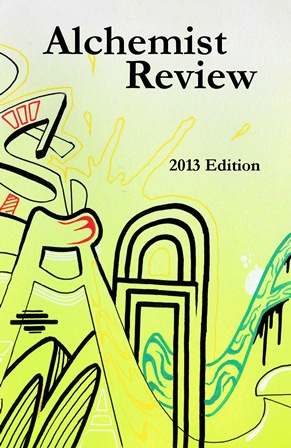By Dr. Meagan Cass
http://witness.blackmountaininstitute.org/issues/volume-26-number-2-summer-2013/daredevil/
Lately, I’ve been writing and reading a lot of stories that involve travel. This is probably because of the weather: we’ve been in the negatives for weeks here in Springfield, IL. I think it also involves the unique possibilities of this type of story, though. I’m also interested in how the stresses of travel can shake things up inside characters, how the strangeness of a new environment can reveal aspects of the self we gloss over in our every day lives.
Elizabeth Anderson’s “Daredevil,” published last summer in Witness, got me started on this travel story kick. The plot involves a young, newly married couple who travel to Niagara Falls for their honey moon. While the husband, Roy, dictates much of the early action of the story—“Niagara Falls, he said, was the honeymoon capital of the world, the only place besides Vegas where anyone ought to consider tying the knot”—the story is told from the perspective of Irene, an eighteen year old who is newly pregnant and trying to quit heroin.
From the beginning of the story, we get the sense that the relationship between Irene and Roy and drugs is powerful, and that the Falls will serve as a loose metaphor for that power. Anderson writes, “Irene couldn’t see the Falls from where she was standing, but she could hear the low, urgent pounding, like the beating of some enormous heart.” It’s a menacing image, one that the story will echo meaningfully later on.
As the Falls come into full view and the honeymoon rolls on, Roy becomes increasingly unpleasant. He makes a xenophobic comment, flirts with another woman, makes outrageous claims about going over the Falls in a barrel, spends all their money buying beers for strangers, and invites his junkie friends to join them, ignoring Irene’s desire for food and intimacy. We learn that in the past, when the couple is low on cash, Roy gets Irene to have sex for money, and that he will likely do this again even though she is knocked up.
The rising tension between Roy and Irene, and the deepening of Irene’s character as she comes into greater self-knowledge and sees her new husband more clearly, is linked to place. Roy is the kind of person who makes ambitious promises (“he said he was going to take her to a restaurant that sat in a high tower above the Falls”) and then easily breaks them (“Instead he took her to the nearest bar…and spent the rest of the evening telling everyone he was a daredevil”). After Roy passes out, Irene returns to the rushing water, remembering the museum guide’s reference to the popularity of suicide here. As readers, we remember earlier in the story, when Irene described the Falls as “like the first time she ever got high with Roy, the cold rush of it, the way something could be so beautiful at the same time so terrible.”
Back then, she stepped back from the railing. Now, demoralized and uncertain about her future with Roy, she steps into the water, “waiting for something to come to her, an answer maybe.” What comes is the knowledge that nothing is a new awareness of her own power. She imagines Roy hurtling over the edge of the Falls in his stolen car, thinks of her unborn child, and experiences her own kind of awakening: nothing will change if she doesn’t act decisively. At the close the story, after she’s turned Roy in to the police and has sat down eat a full stack of pancakes, we feel that new sense of agency. When the Falls “[roar] in her ears,” we also hear Irene’s enormous desire to survive.
This story made me newly aware of the rich possibilities of travel stories. At their best, travel stories carve fresh, vivid emotional vocabularies from the places the characters visit, from rushing water and old bourbon barrels and cheesy museums and stolen cars, from all night diners and stock postcards and on and on. When we send our characters out of town, when we strand them in dingy hotel rooms or at the Crowne Plaza, at a hokey tourist attraction or at a fine museum, we also send them deeper inside themselves.

